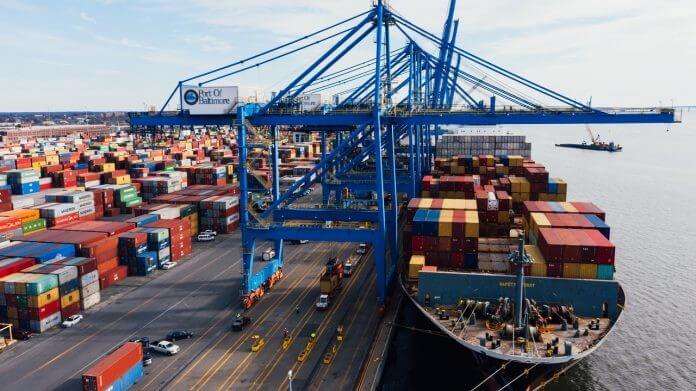
Effective Stock Trading Strategies for Beginners
August 9, 2024
What is Wholesale trade? Advantages, Types, and Functions
August 13, 2024Domestic Trade: An In-Depth Exploration

domestic trade image (1)
Introduction to Domestic Trade
Domestic trade refers to the buying and selling of goods and services within the boundaries of a particular country. Unlike international trade, which involves cross-border transactions, domestic trade is confined to a single nation, making it a crucial component of a country’s economy. But why is domestic trade so important? For starters, it plays a vital role in sustaining the national economy by ensuring that goods produced locally are distributed efficiently to meet consumer demand. Historically, domestic trade has evolved from simple barter systems to complex networks involving various intermediaries, reflecting the economic development of a nation.
Types of Domestic Trade
Wholesale Trade
Wholesale trade involves buying goods in large quantities from manufacturers or producers and selling them in smaller quantities to retailers or other businesses. Wholesalers act as intermediaries who bridge the gap between producers and retailers, ensuring that products are available for consumers.
Retail Trade
Retail trade, on the other hand, deals directly with consumers. Retailers purchase goods from wholesalers or directly from manufacturers and sell them to the end-users. Retail trade is the most visible form of domestic trade, as it encompasses everything from small shops to large retail chains.
Online Trade
With the rise of the internet, online trade has become an increasingly important aspect of domestic trade. E-commerce platforms allow consumers to purchase goods and services from the comfort of their homes, making it easier for businesses to reach a wider audience.
Key Players in Domestic Trade
Producers and Manufacturers
The starting point of domestic trades involves producers and manufacturers who create goods and services. They play a fundamental role in determining the availability and variety of products in the market.
Wholesalers
Wholesalers are crucial in the supply chain, purchasing goods in bulk from manufacturers and selling them to retailers. They help in reducing the cost of distribution and ensuring that products are available across different regions.
Retailers
Retailers are the direct link between products and consumers. They play a significant role in shaping consumer preferences by offering a variety of goods and services.
Consumers
Consumers are the final players in the domestic trade chain. Their preferences, purchasing power, and demand drive the entire domestic trade system.

The Role of Domestic Trade in Economic Development
Employment Generation
Domestic trade is a significant source of employment, providing jobs in various sectors, including manufacturing, retail, logistics, and more. This employment generation is crucial for the overall economic health of a nation.
Contribution to GDP
Domestic trade contributes significantly to a country’s Gross Domestic Product (GDP). The exchange of goods and services within the country helps in the circulation of money and boosts economic activities.
Regional Economic Integration
Domestic trade fosters regional economic integration by connecting different regions within a country. It ensures that products from one region can reach consumers in another, promoting balanced economic growth.
Factors Influencing Domestic Trade
Consumer Preferences
Consumer preferences play a pivotal role in shaping domestic trade. Businesses must constantly adapt to changing tastes and demands to stay competitive in the market.
Government Policies
Government policies, including tax regulations, trade laws, and tariffs, significantly impact domestic trade. Favorable policies can boost trade, while restrictive ones can hinder it.
Technological Advancements
Technology has revolutionized domestic trade by introducing innovations such as e-commerce, digital payments, and automated supply chains. These advancements have made trade more efficient and accessible.
Supply Chain Management
Effective supply chain management is essential for the smooth functioning of domestic trade. It involves the coordination of production, transportation, and distribution to ensure that goods reach consumers in a timely manner.
Challenges in Domestic Trade
Regulatory Hurdles
Navigating through various regulations and compliance requirements can be challenging for businesses engaged in domestic trade. These hurdles often slow down operations and increase costs.
Competition and Market Saturation
Domestic markets can become saturated, leading to intense competition among businesses. This competition can drive down prices and profit margins, making it harder for companies to thrive.
Logistics and Distribution Issues
Efficient logistics and distribution are critical for domestic trade. However, challenges such as inadequate infrastructure, high transportation costs, and supply chain disruptions can pose significant obstacles.
Government’s Role in Promoting Domestic Trade
Trade Regulations and Policies
The government plays a crucial role in regulating domestic trade through policies that encourage fair competition, protect consumer rights, and promote business growth.
Support for Small and Medium Enterprises (SMEs)
SMEs are the backbone of domestic trade. Governments often provide financial assistance, tax incentives, and other support measures to help these businesses thrive.
Infrastructure Development
Investment in infrastructure, such as roads, ports, and communication networks, is vital for the efficient functioning of domestic trade. Governments must prioritize infrastructure development to facilitate smoother trade operations.
Technological Impact on Domestic Trade
E-commerce Revolution
The rise of e-commerce has transformed domestic trade by making it easier for consumers to shop online and for businesses to reach a wider audience. E-commerce platforms have become a significant part of the retail landscape.
Digital Payment Systems
Digital payment systems have streamlined transactions, making it easier for consumers to pay for goods and services. These systems have also reduced the reliance on cash, promoting financial inclusion.
Automation and AI in Trade Processes
Automation and artificial intelligence (AI) are increasingly being used in domestic trade to optimize supply chains, manage inventory, and improve customer service. These technologies enhance efficiency and reduce operational costs.
Regional Variations in Domestic Trade
Urban vs. Rural Trade Dynamics
Domestic trade varies significantly between urban and rural areas. Urban areas often have more developed markets and higher consumer demand, while rural areas may have limited access to goods and services.
Impact of Regional Cultures and Preferences
Regional cultures and preferences influence the types of products that are popular in different areas. Businesses must tailor their offerings to meet the unique demands of each region.
Regional Economic Disparities
Economic disparities between regions can affect domestic trade. Wealthier regions may have higher consumer spending, while poorer regions may struggle with limited market access.
Case Studies of Successful Domestic Trade Models
Walmart in the United States
Walmart’s domestic trade model focuses on offering a wide range of products at low prices, supported by an extensive supply chain network. This model has made Walmart one of the largest retailers in the world.
Reliance Retail in India
Reliance Retail has successfully tapped into India’s domestic market by offering a diverse range of products through its vast network of stores. The company has also embraced e-commerce, expanding its reach further.
Alibaba’s Domestic Trade Operations in China
Alibaba’s domestic trade operations leverage e-commerce to connect millions of consumers with businesses across China. The company’s use of technology and logistics has revolutionized domestic trade in the country.
The Future of Domestic Trade
Emerging Trends in Domestic Trade
As consumer preferences evolve, domestic trade is likely to see trends such as increased demand for sustainable products, the rise of direct-to-consumer brands, and the growth of omnichannel retailing.
Impact of Global Events on Domestic Trade
Global events such as pandemics, economic recessions, and political changes can have a profound impact on domestic trade. Businesses must be agile and adaptable to navigate these challenges.
Predictions for the Next Decade
The next decade is expected to bring significant changes to domestic trade, with advancements in technology, shifts in consumer behavior, and increased focus on sustainability shaping the future landscape.
Sustainability and Domestic Trade
Green Supply Chains
As environmental concerns grow, businesses are increasingly focusing on green supply chains that minimize carbon emissions and promote sustainable practices.
Ethical Trade Practices
Ethical trade practices, such as fair labor standards and responsible sourcing, are becoming more important in domestic trade. Consumers are increasingly demanding transparency and accountability from businesses.
Consumer Awareness and Sustainable Choices
Consumers are becoming more aware of the environmental and social impact of their purchases. This awareness is driving demand for sustainable products and ethical business practices.
Impact of Global Trade on Domestic Trade
How Global Trade Influences Domestic Markets
Global trade can influence domestic markets by introducing new products, increasing competition, and affecting pricing. Domestic businesses must adapt to these changes to remain competitive.
The Balance Between Imports and Domestic Production
Striking the right balance between imports and domestic production is crucial for the health of a nation’s economy. Over-reliance on imports can harm local industries, while excessive protectionism can limit consumer choice.
How to Improve Domestic Trade Efficiency
Streamlining Supply Chains
Improving supply chain efficiency is key to reducing costs and ensuring that products reach consumers quickly. This can be achieved through better logistics, inventory management, and technology adoption.
Leveraging Technology
Technology can significantly enhance domestic trade efficiency. From automating processes to using data analytics for better decision-making, technology offers numerous opportunities for businesses to improve.
Enhancing Consumer Experience
Providing a positive consumer experience is essential for success in domestic trade. This includes offering high-quality products, excellent customer service, and convenient shopping options.
Conclusion and Key Takeaways
Domestic trade is a vital component of a nation’s economy, driving employment, contributing to GDP, and fostering regional integration. As the landscape of domestic trade continues to evolve, businesses must adapt to emerging trends, technological advancements, and consumer demands. The future of domestic trade looks promising, with sustainability, technology, and innovation playing central roles in shaping its direction.
FAQs
What is the difference between domestic and international trade?
Domestic trade occurs within a country’s borders, while international trade involves the exchange of goods and services across different countries.
How does domestic trade impact the local economy?
Domestic trade supports local businesses, generates employment, and contributes to the national GDP, playing a crucial role in economic development.
What are the main challenges faced by domestic traders?
Domestic traders often face challenges such as regulatory compliance, intense competition, and logistics issues that can impact their operations.
How can technology improve domestic trade?
Technology can enhance domestic trade by streamlining supply chains, improving customer experience, and increasing efficiency through automation and digital tools.
What is the role of government in domestic trade?
The government regulates domestic trade through policies, provides support to businesses, and invests in infrastructure to facilitate smooth trade operations.



